jeudi, 10 mai 2018
Ukrainian Nationalist Perspective of the Events in Ukraine and the Third Geopolitical Way
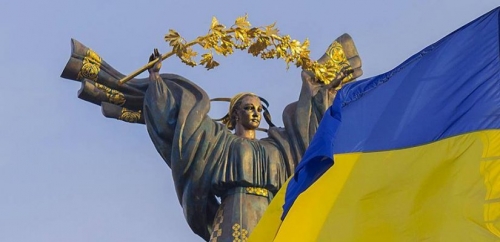
Olena Semenyaka:
Ukrainian Nationalist Perspective of the Events in Ukraine and the Third Geopolitical Way
NOTE DE LA REDACTION: Ce texte émane d'Olena Semenkaya, théoricienne de la révolution conservatrice allemande en Ukraine, dont elle cherche à appliquer les principes dans la réalité ukrainienne d'aujourd'hui. Elle travaille sur une thèse de doctorat qui sera consacrée à Ernst Jünger. Elle est membre du Haut-conseil du Corps National, branche politique du Mouvement néo-nationaliste ukrainien Azov, chargée des relations internationales, coordinatrice du réseau paneuropéen Reconquista et du projet géopolitique Intermarium.
Inutile de préciser que ses thèses sur la révolution conservatrice rencontrent notre plus vif intérêt, d'autant plus qu'elles s'expriment, non pas dans le "Grand Hospice" occidental fustigé par Edouard Limonov, mais dans une zone de grande effervescence politique, comme le furent sans aucun doute les premières années de la République de Weimar.
En revanche, les positions antirusses irrationnelles des mouvements qu'elle anime et patronne, nous les percevons comme dangereux pour l'ensemble de l'écoumène européen qui devrait, comme nous l'avons maintes fois répétés, retrouvé l'harmonie de l'alliance franco-austro-russe du 18ième siècle et de la Sainte Alliance pentarchique née à Vienne en 1814. Géopolitiquement parlant, il nous est impossible de théoriser un abandon du bassin de la Volga et des richesses sibériennes ou de renoncer à tout accès direct à l'espace de la Caspienne. Ensuite, les forces dites "illiberal" doivent unir leurs efforts et non pas se disperser en des combats fratricides.
Mais ce qui est le plus intéressant, et en même temps, le plus amusant dans cette étude qu'elle livre ici pour une revue allemande, en l'occurrence Gegenlicht, c'est sa critique féroce de la russophilie de ce qu'il est convenu d'appeler la "Nouvelle Droite": sa cible favorite, qui l'eût cru, est évidemment Alexandre Douguine mais elle n'épargne pas davantage les frères ennemis de la ND française, l'inénarrable de Benoist et l'homme que ce dernier n'a cessé d'injurier et de calomnier, Guillaume Faye. A ce duo s'ajoutent Robert Steuckers et Pavel Toulaev (Tulaev) même si on sent bien qu'Olena Semenkaya s'est bien amusée à lire leur entretien, consacré à divers sujets dont la ND (voir bibliographie en fin d'article). Douguine, Benoist, Faye, Steuckers et Toulaev prennent quelques volées de bois vert. Steuckers estime que cette fureur féminine est amusante et ne voit aucun inconvénient à ce qu'elle figure sur la grande toile, y compris sur des sites fréquentés par ses lecteurs; il a toujours brocardé les "gourouïsmes" inféconds du milieu néo-droitiste, l'article d'Olena Semenkaya pouvant dès lors servir d'antidote à ceux qui y succombent et qui veulent faire de lui, à son corps défendant, un gourou aussi ridicule que les autres.
De plus que ce texte permet de mieux comprendre l'imbroglio ukrainien, pour autant que cela soit possible, ici, en Europe de l'Ouest. Olena Semenkaya doit comprendre que l'extrême complexité des clivages à l'oeuvre en Ukraine laisse bon nombre d'observateurs perplexes.
Sur le sujet on lire un article didactique en langue espagnole:
https://slavyangrad.es/2017/01/13/el-contexto-ideologico-...
* * *
Olena Semenkaya:
During the past year after Maidan Ukrainian intellectuals have been mostly preoccupied with refuting anti-Ukrainian fake news and answering the interviews rather than developing a coherent analysis of the events at Maidan or at least criticizing its accounts by the most authoritative figures in the New Right community – Alain de Benoist and Guillaume Faye. The information warfare on occasion of the Ukrainian conflict may be fairly regarded as a climax of postmodern, for in this case the infamous simulacra not only function as real, but overpower every ideology due to the total domination of mass media over people’s minds, unprecedented historical ignorance of recipients and such a strong anti-“fascist” neo-Soviet propaganda in Russia that the practice of denazification in the post-war Germany looks like a delicate therapeutic procedure.
The anti-Russian highlights of the Western media might be double-standard and hypocritical, but the Russian drivers of an anti-Ukrainian hate machine, which is worse, do believe in their own lies, and people stick to it (for instance, a story of the crucified by the Ukrainian National Guard little boy in the recaptured city of Slovyansk) even when it is denied by their own idols like Igor Strelkov (Girkin), which is a way of recruiting the new fighters for the “Novorussian” militia. Thus the developments in Ukraine and Russia give more data to psychiatrists and sociologists than historians and philosophers.
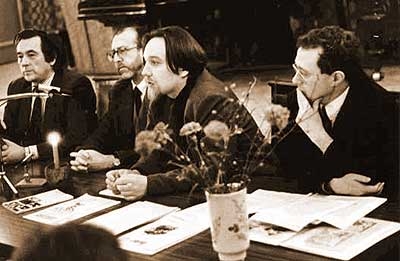
Début avril 1992: conférence de presse à Moscou: de gauche à droite, Alexandre Prokhanov, ancien rédacteur-en-chef de "Lettres soviétiques" et directeur du journal Dyeïnn, Alain de Benoist, Alexandre Douguine et Robert Steuckers.
Even though both of the aforementioned thinkers tried to offer a balanced overview of the Ukrainian situation, and de Benoist admitted the split among the revolutionaries, the most passionary part of which transcends the false geopolitical dilemma between the EU / NATO and the Russian Federation [1], their main premises are in full accord with the interpretative axioms of the leader of neo-Eurasianism Alexander Dugin whose strategy may be summarized in terms of four basic aspirations: 1) to reduce the complexity of the cultural-historical relations between the Russian Empire and its heir, the Russian Federation, and Ukraine to geopolitics and the geopolitical rivalry of the US and Russia over Ukraine and Europe; 2) to deconstruct the historical and geopolitical ambitions of the Ukrainian Right and their claims to represent the Third Position and thus to show that they are at best the useful idiots of Euro-Atlanticism and Ukraine is a playground of another colour revolution in service of the American hegemony; 3) to make everyone associate resistance against the new world order and, arguably synonymously, the ideal of “the multi-polar world” under Russian protection namely with the project of “Novorussia” and Putin; 4) to emphasize disappearance of the communistic camp (two-polar world), silence the fact that the Soviet Union was a co-founder of the NWO that criminalized German and, consequently, European national self-awareness and to denigrate “ethnonationalism” as favorable for the America-dominated one-polar world “fascism.”
These cornerstones of Dugin’s fourth (after liberalism, communism and fascism / Conservative Revolution) political theory were accepted by de Benoist a long time ago: his thematic work was published in Russian under the title “Against Liberalism: to the Fourth Political Theory” in 2009 before a visit to St. Petersburg and after his participation in the Moscow conference in 2008 which were organized by Dugin. During these visits de Benoist defined liberalism as the main enemy and confirmed his cooperation with the Eurasianist movement as the only real alternative of mondialism and American hegemony. In other words, Alain de Benoist, as a co-founder of the 4PT, in his analysis of the Ukrainian conflict simply restated similar to Dugin’s ideas in a more moderate manner.
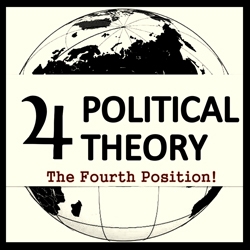 Moreover, Dugin himself drew inspiration from de Benoist’s version of the New Right when he wrote his introduction to Conservative Revolution in a monograph of the same title back in 1994. As a result, the residents of the post-Soviet countries who had no access to the original sources since the very beginning perceived “failed” Conservative Revolution (the 3PT) as a prelude to the pro-Soviet “Young Europe” of Jean Thiriart, the French New Right of Alain de Benoist and Eurasianism as such that don’t repeat the “anti-Soviet” mistake of their predecessors. Thus Dugin singles out one of the conservative-revolutionary trends, the National Bolshevik, which favors the Soviet Union, more precisely, the National Bolshevik group led by Ernst Niekisch within the classic national-revolutionary direction and portrays it as the only relevant one.
Moreover, Dugin himself drew inspiration from de Benoist’s version of the New Right when he wrote his introduction to Conservative Revolution in a monograph of the same title back in 1994. As a result, the residents of the post-Soviet countries who had no access to the original sources since the very beginning perceived “failed” Conservative Revolution (the 3PT) as a prelude to the pro-Soviet “Young Europe” of Jean Thiriart, the French New Right of Alain de Benoist and Eurasianism as such that don’t repeat the “anti-Soviet” mistake of their predecessors. Thus Dugin singles out one of the conservative-revolutionary trends, the National Bolshevik, which favors the Soviet Union, more precisely, the National Bolshevik group led by Ernst Niekisch within the classic national-revolutionary direction and portrays it as the only relevant one.
According to Dugin’s “Conservative Revolution,” the progress of de Benoists’ New Right consists in refusal from white supremacism and Euro-centrism along with westernalism and capitalism: the new rightists fight not against immigrants, but against immigration and not for the people (their own nation), but for the peoples [2]. As a result, the reader gets a distorted idea of the “Old Right”: firstly, it is almost reduced to the media representation of Nazism, secondly, the Conservative Revolution is described as a theory devoid of the methodological and theoretical (above all, geopolitical) foundations for the effective resistance against the left-liberal world order at the global level and securing diversity of traditions and nations. In addition, the idea of old Europe as a cultural and mythological, even a sacred center vanishes; this role is also hijacked by the “real” Third Rome Moscow, which is unequivocally associated by the Russian Right with the multicultural Carthage, “Moscwabad.”
Jean Thiriart et Alexandre Douguine à Moscou, en 1992.
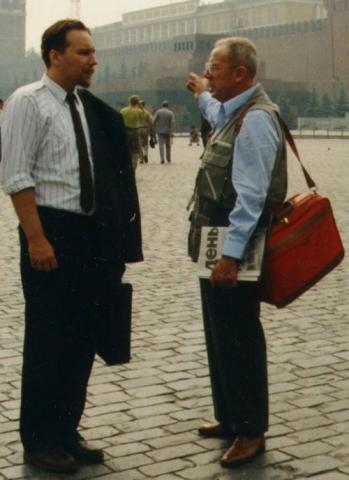 Belgian right-wing writer and politician Robert Steuckers who advocates his own version of Eurasianism and welcomed the National Bolshevik shift in the French New Right as a way to overcome “petty conservatism” and “alternative liberalism” at the same time severely criticized de Benoist’s opportunism and fear of being labeled a far right extremist, according to his subjective experience of collaboration with the French “Guru” and his followers. Probable ideological rivalry and Steuckers’ own pro-Russian position aside, he shares an opinion that the attempts to bury the conservative-revolutionary authorities by some new rightists are a bit hasty, which proves his story about de Benoist’s admirer Toto-Lapin (“…he shouted in the middle of the pub, next to the astonished other guests, “Alain de Benoist is the greatest philosopher of the 20th Century!”. “Maybe” answered Bresnu ironically, “but what about Heidegger then…?”. Toto-Lapin: “He has only paved the way for Alain de Benoist…”. We both burst out laughing…”) [3]. It’s doubtful that de Benoist himself, who was very fond of Heidegger, would make similar arrogant statements, the same as Dugin, but looks like both of them cast out colleagues whose views are somehow different, which also follows from my experience of communication with Eurasianists.
Belgian right-wing writer and politician Robert Steuckers who advocates his own version of Eurasianism and welcomed the National Bolshevik shift in the French New Right as a way to overcome “petty conservatism” and “alternative liberalism” at the same time severely criticized de Benoist’s opportunism and fear of being labeled a far right extremist, according to his subjective experience of collaboration with the French “Guru” and his followers. Probable ideological rivalry and Steuckers’ own pro-Russian position aside, he shares an opinion that the attempts to bury the conservative-revolutionary authorities by some new rightists are a bit hasty, which proves his story about de Benoist’s admirer Toto-Lapin (“…he shouted in the middle of the pub, next to the astonished other guests, “Alain de Benoist is the greatest philosopher of the 20th Century!”. “Maybe” answered Bresnu ironically, “but what about Heidegger then…?”. Toto-Lapin: “He has only paved the way for Alain de Benoist…”. We both burst out laughing…”) [3]. It’s doubtful that de Benoist himself, who was very fond of Heidegger, would make similar arrogant statements, the same as Dugin, but looks like both of them cast out colleagues whose views are somehow different, which also follows from my experience of communication with Eurasianists.
Likewise, sarcastic reconstruction of de Benoist’s ideological maneuvers by Steuckers is worth quoting as valid with regard to Dugin’s 4PT: “…Alain de Benoist tried to demonstrate that the “New Right” was in fact the real “New Left” and the true inheritor of Marx’ ideas as well as the devoted intellectual protector of the masses of African and Muslim immigrants against the centralization and assimilation efforts of the alleged “xenophobic” French State’s system, while the “New Left” was genuinely a neo-conservative islamophobe movement… [de Benoist] wrote all that very seriously, in the credulous hope he would have been finally taken as a genuine leftist by the Left and would have transformed his alleged false rightist young fellows in true new leftists more leftist than the usual leftists…” [4]. In spite of his Euro-Siberian solidarity, Steuckers underlines that Leontiev’s and Gumilev’s equation between Europe and the West, which was adopted by Dugin’s neo-Eurasianism, is not acceptable: firstly, the subversive Western spirit entered Russia in form of Bolshevism; secondly, it excludes Western Europeans from the area of the future political reconquest and threatens with reactivation of “the worst aspects of Nazi or NATO propaganda,” which already happens today.
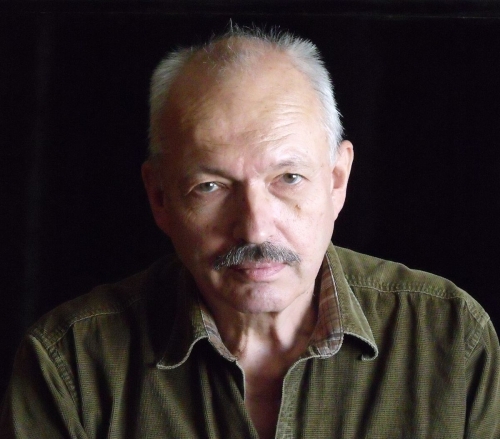
Oleg Bakhtiyarov.
In this context I would like to mention an opinion of the Russian-Ukrainian scientist Oleg Bakhtiyarov who, overall, justifies Putin’s struggle for the world domination or at least one of the leading roles in the global politics, albeit at the expense of Ukraine, but believes that Putin made a big mistake when he did not support “Right Sector” and the Ukrainian rightists in general, back then united under this title, who were against joining the EU [5]. As a matter of fact, the latter were the only possible allies of Putin if he wanted to prove that Russia does not threaten Ukrainian sovereignty and national identity. He chose the opposite forceful way and understood that his main enemy was a pro-Western “junta” only after the presidential and parliamentary elections which showed that Ukrainian nationalists either did not have such a big support of population, or lacked resources and influence to gain a decisive political victory. Moreover, the Kremlin’s propaganda made a scarecrow of “Right Sector” as an embodiment of the Ukrainian Right not only in the Russian but also the Ukrainian society that voted for the liberal forces in order “not to provoke” Putin, but it was too late to regret weakening the national-revolutionary factor in Ukraine when the Kremlin realized that the new government was far more pro-EU than the Maidan “radicals.” After Putin changed its strategy and turned “the junta” into the main target of the anti-Ukrainian information warfare, further denigration of the Ukrainian rightists as “the pseudo-revolutionary puppets of the pro-Western oligarchs” was, actually, odd, the same as sporadic hopes of the “rebels” from “DNR” and “LNR” to form an alliance with “Right Sector” as the only political force that dares to challenge the Ukrainian authorities: Ukrainians were ready to unite with them only before they started capturing the administrative buildings under the Russian flags, and now thousands of the fallen Ukrainian soldiers make reconciliation impossible.
Besides, Oleg Bakhtiyarov fairly draws attention to the fact that after Maidan the Russian language in Ukraine reinforced its positions, because what really counts for Ukrainians today is only a pro-Ukrainian standpoint, heroic values and readiness for self-sacrifice in war for homeland, although speaking Ukrainian and wearing the traditional clothes have become “fashionable,” too. A lot of fighters of “Right Sector’s” DUK (Volunteer Ukrainian Corpse) are Russian speaking, not mentioning other military forces, especially the “Azov” regiment. Thus those who claim that Ukrainians violated the rights of Russian speaking population in East Ukraine and Crimea by depriving Russian of the status of the second state language, Guillaume Faye in particular, are ignorant: Russian has never been the second state language in Ukraine, including Crimea where it only had a special status. Reaffirming Ukrainian as the only official state language (which means a language of communication in state institutions) after Maidan was not provocative, only untimely, for raising this topic before the new government gained a popular support was a true “gift” for Putin. Today the key “junta” officials like Interior Minister Arsen Avakov also freely speak publicly Russian. Moreover, a big part of the political Ukrainian nation that is being created now, apart from the titular nation, by various national minorities, is represented namely by the ethnic Russians. Yet the Russian nationalists who fight on the Ukrainian side confess that Ukraine is a white paradise unknown to the multicultural Russia.
As a vanguard of the struggle for the multi-polar world in theory, in practice Russia and its new rightist glorifiers do not hesitate to sacrifice the national peculiarities of Ukraine or Baltic countries in the name of the new “traditional order”: after all, for them the “anti-Russian” Slavic and Western European nationalists are ungrateful and narrow-minded servants of the US and fascists who discriminate the rights of Russians or Russophobes. One does not have to be a liberal to see hypocrisy of these considerations; the New Right is fairly recognized as a mask for the same Old Left face, which was openly stated by de Benoist: “We’ll finally prefer to put on our heads Red Army caps than to finish as fat old guys eating disgusting hamburgers somewhere in a nasty Brooklyn lane” [6]. Thus the 4PT is not natural surpassing of the previous political theory under the changed historical conditions, but giving up the very idea of the Third Way, the geopolitical projection of which has always been the sovereign Mitteleuropa and which can never be reduced to mere geopolitics.
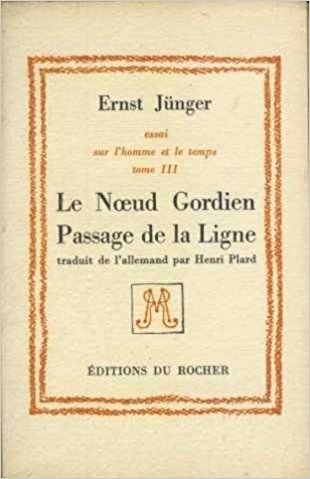 Such godfathers of Conservative Revolution as Ernst Jünger and Julius Evola did not abandon the Third Way in their post-war writings, which, in all fairness, may be estimated as the documents of a firm refusal from geopolitical reductionism that is a diagnosis and a sacred mantra of the vast majority of “experts” on the Ukrainian crisis; above all, it concerns their polemic on the East-West problem and its treatment in Jünger’s essay “The Gordian Knot.” It’s enough to read a concluding chapter of Evola’s classic “Revolt Against the Modern World,” in which he discusses the cultural and civilizational foundations of America and Russia as the two sides of the same coin, or his article “Presuppositions of the European Union,” in which Evola clearly explains not only his “third” geopolitical ideal, but the very condition on which building a genuine European union is possible: equal remoteness from Russia and the USA, “both “East” and “West,” that is to say from the two blocs which, like the arms of a single pair of pincers, are closing themselves around us” [7], to guess what would be his reaction to the 4PT. Ernst Jünger, who viewed experience of the USSR and the socialist camp in general as the brightest confirmation of his metaphysical theory of the Worker that mobilizes the world by means of technology, at the same time was far from embracing its cultural, social and political practice, thus disagreeing and polemicizing with pro-Soviet Ernst Niekisch. The same as in Evola’s case, namely metaphysics and culture were a reason for Jünger’s choice in favor of the third geopolitical way as stated in his treatise “Peace”: “With the destruction of our towns, Goethe's saying has ceased to apply to this extent, that America now possesses the tradition of construction which we require. Napoleon prophesied that in our day the world would become republican or Cossack. If he had foreseen our situation in detail he would have said “American or Russian,” as Tocqueville, too, long ago foretold. Although America, like Russia, will exert a powerful influence on Europe, neither of these two possibilities will be realized. Against them is the immense gravitational force of history, the treasure of old heritage, which has not only been formed by the spirit or art but still lives in men” [8]. Therefore, the geopolitical fetishism, according to which “there is only the geopolitical truth” and the proponents of which dismiss the struggle of Ukrainian patriots as unimportant due to the partial coincidence of their and Western interests, should be considered as alien to the traditionalist worldview. Armin Mohler, a legendary author of the classic research “Conservative Revolution in Germany, 1918-1932” and an original founder of the New Right, considered Americans more German friendly than Frenchmen and Englishmen and admitted that he was not that anti-American in this respect as de Benoist [9].
Such godfathers of Conservative Revolution as Ernst Jünger and Julius Evola did not abandon the Third Way in their post-war writings, which, in all fairness, may be estimated as the documents of a firm refusal from geopolitical reductionism that is a diagnosis and a sacred mantra of the vast majority of “experts” on the Ukrainian crisis; above all, it concerns their polemic on the East-West problem and its treatment in Jünger’s essay “The Gordian Knot.” It’s enough to read a concluding chapter of Evola’s classic “Revolt Against the Modern World,” in which he discusses the cultural and civilizational foundations of America and Russia as the two sides of the same coin, or his article “Presuppositions of the European Union,” in which Evola clearly explains not only his “third” geopolitical ideal, but the very condition on which building a genuine European union is possible: equal remoteness from Russia and the USA, “both “East” and “West,” that is to say from the two blocs which, like the arms of a single pair of pincers, are closing themselves around us” [7], to guess what would be his reaction to the 4PT. Ernst Jünger, who viewed experience of the USSR and the socialist camp in general as the brightest confirmation of his metaphysical theory of the Worker that mobilizes the world by means of technology, at the same time was far from embracing its cultural, social and political practice, thus disagreeing and polemicizing with pro-Soviet Ernst Niekisch. The same as in Evola’s case, namely metaphysics and culture were a reason for Jünger’s choice in favor of the third geopolitical way as stated in his treatise “Peace”: “With the destruction of our towns, Goethe's saying has ceased to apply to this extent, that America now possesses the tradition of construction which we require. Napoleon prophesied that in our day the world would become republican or Cossack. If he had foreseen our situation in detail he would have said “American or Russian,” as Tocqueville, too, long ago foretold. Although America, like Russia, will exert a powerful influence on Europe, neither of these two possibilities will be realized. Against them is the immense gravitational force of history, the treasure of old heritage, which has not only been formed by the spirit or art but still lives in men” [8]. Therefore, the geopolitical fetishism, according to which “there is only the geopolitical truth” and the proponents of which dismiss the struggle of Ukrainian patriots as unimportant due to the partial coincidence of their and Western interests, should be considered as alien to the traditionalist worldview. Armin Mohler, a legendary author of the classic research “Conservative Revolution in Germany, 1918-1932” and an original founder of the New Right, considered Americans more German friendly than Frenchmen and Englishmen and admitted that he was not that anti-American in this respect as de Benoist [9].
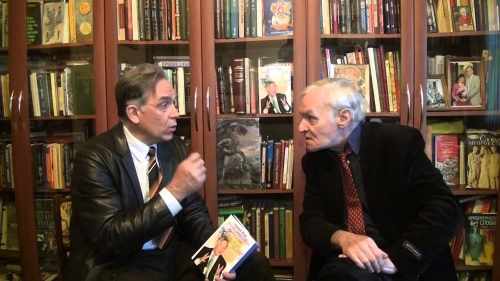
Un débat entre Pavel Tulaev et Guillaume Faye, à Termonde en Flandre.
The aforementioned quotations by Steuckers are taken from his interview (2014) with Pavel Tulaev, a Russian right-wing intellectual and a contact person for both Robert Steuckers and Guillaume Faye, who has also been on various occasions in Russia since 2005 to participate in the events organized by Tulaev. Theoretically a far more right-wing opponent of de Benoist who had to start his own school of the French New Right thought, which in this context means restoration of the normal conservative-revolutionary course, in reality Faye falls in exactly the same trap of celebrating the worst ideological biases of neo-Sovietism under the guise of “disappearance” of the communistic camp and the need to support “the only real alternative” of the NWO. Tulaev, who sent to de Benoist an issue of his Russian New Right journal “Athenaeus” and heard in response that this “far right,” almost “Neo-Nazi” edition had nothing in common with the theoretic platform of the real New Right under de Benoist’s supervision, in turn, accused the latter of the left-wing phraseology and attitudes and described their exchange as a remarkable historical event which proved that the Russian intellectuals finally abandoned the revolutionary populism and demagogy of the French Commune [10]. However, when it comes to the Ukrainian conflict, Tulaev repeats far worse demagogical Bolshevik clichés about the “Banderist fascists” who kill the Slavic people for American dollars, in comparison with which the accounts by Faye and de Benoist, taken together, look rather moderate [11].
L'ouvrage de Pavel Tulaev sur la Crimée: de Catherine II à Vladimir Poutine.
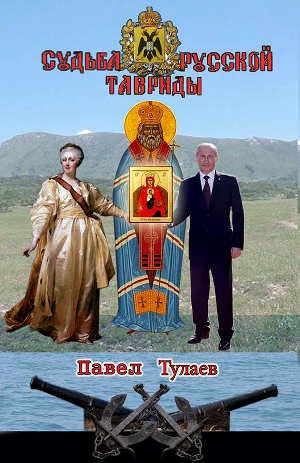 As an ideologist of Euro-Siberia, later the Euro-Siberian Empire, Faye owes his fame to different aspects of his theory, for in his highly acclaimed book “Archeofuturism” he displayed quite approximate, if not fantastic, knowledge of Russia. A logical summary of Faye’s visits to Russia has become his pamphlet “Frenchman’s View on Russia” (2012), which was not the climax of his fascination with the Russian genius, though: the titles of his recent thematic texts like “Viva Putin!” say it all. Given that, it’s no wonder that Faye calls hypocritical only American condemnation of violating the international law by Russia, but does not find outrageous the fact that the country that annexed Crimea not only was obliged to protect the territorial integrity of Ukraine in exchange for its renouncing the nuclear weapons according to the Budapest memorandum, but even dared to threaten Ukraine with a nuclear strike. Moreover, he believes that Russia’s response to the Western “aggression” was moderate and that Putin follows the rules, as opposed to the USA. Though little is expected from the right-wing idol who traces back the statist history of Ukraine from its membership in the USSR, considers Ukrainian independence from the Soviet Union purely nominal and believes that this “half-Russian” country would sooner or later “break up” itself [12], which is quite laughable, taking into account a current size of “Novorussia” thanks to the efforts of the Ukrainian military and active help of the “Russian” cities’ residents like Kharkiv, Odessa and Mariupol.
As an ideologist of Euro-Siberia, later the Euro-Siberian Empire, Faye owes his fame to different aspects of his theory, for in his highly acclaimed book “Archeofuturism” he displayed quite approximate, if not fantastic, knowledge of Russia. A logical summary of Faye’s visits to Russia has become his pamphlet “Frenchman’s View on Russia” (2012), which was not the climax of his fascination with the Russian genius, though: the titles of his recent thematic texts like “Viva Putin!” say it all. Given that, it’s no wonder that Faye calls hypocritical only American condemnation of violating the international law by Russia, but does not find outrageous the fact that the country that annexed Crimea not only was obliged to protect the territorial integrity of Ukraine in exchange for its renouncing the nuclear weapons according to the Budapest memorandum, but even dared to threaten Ukraine with a nuclear strike. Moreover, he believes that Russia’s response to the Western “aggression” was moderate and that Putin follows the rules, as opposed to the USA. Though little is expected from the right-wing idol who traces back the statist history of Ukraine from its membership in the USSR, considers Ukrainian independence from the Soviet Union purely nominal and believes that this “half-Russian” country would sooner or later “break up” itself [12], which is quite laughable, taking into account a current size of “Novorussia” thanks to the efforts of the Ukrainian military and active help of the “Russian” cities’ residents like Kharkiv, Odessa and Mariupol.
As usual, nobody mentions that namely Ukraine was an original Kievan Rus and only after accepting the Russian protectorate by the Ukrainian Hetman Bogdan Khmelnytskyi at the Council of Pereyaslav (1654) started entering the cultural and geopolitical orbit of the tsarist Russian Empire, which was renamed from Muscovy to Russia by Peter the Great in 1721 and was an heir of the Golden Horde in terms of the governing traditions. The last Hetman of Ukraine Pavlo Skoropadsky, who was quite pro-Russian culturally, conducted a multivector foreign policy and could easily defeat the Bolshevik invaders unless the social-revolutionary government of UPR (Ukrainian People’s Republic) Directoria revolted against his conservative government in November of 1918 and dispersed its well-trained and disciplined military units under the pretext of Hetman’s signing a federative treaty with the already non-existent non-Bolshevik Russia. Skoropadsky, who was a German ally and met Paul von Hindenburg in person, was forced to do it under conditions of the predictable defeat of Germany in the First World War, tried to establish a military alliance with the Russian White movement, the officers in particular, against Bolsheviks and, overall, considered this move a tactical step that did not undermine the national self-determination of Ukraine but, quite the opposite, could save and reinforce it.
The anti-Hetman uprising, among others, supported two prominent figures: Yevhen Konovalets, the head of the Sich Riflemen and the future legendary Organization of Ukrainian Nationalists (OUN), and a brilliant colonel Petro Bolbochan, most famous as the commander of the Zaporozhian Corps, who was probably the first to start creating the professional Ukrainian military from the former Russian units and was against both the Red and White Army. Namely the ideal of the independent Ukrainian state made him support the UPR instead of Hetmanate, for he had tensions with the pro-Russian associates of Skoropadsky. Later Konovalets had an opportunity to talk to Skoropadsky in Berlin and regretted his decision: according to his memoirs, if he had known that Bolsheviks would take advantage of the overthrow and capture Kiev, he would have never joined the UPR. Bolbochan’s “disillusionment” with the republican authorities was much more tragic, since this talented colonel, who liberated from the Bolshevik invaders even Crimea, became a victim of the internal intrigues, was accused of a state treason, preparing regime overthrow and eventually executed by order of the Directoria’s leader Symon Petliura in 1919. It was a price for his sharp criticism of the Directoria’s defeatism, indecisiveness and incompetence that was rooted in the hopes to stop the Bolsheviks by peace talks.
I retell the short history of the Ukrainian liberation struggle of 1917-1921 precisely in order to draw parallels with the modern Ukrainian war for sovereignty between “the civilized West” and the neo-imperialist Russia. There is no need to apply the inadequate terms like “junta” to a post-Maidan Ukrainian government, for two reasons. Firstly, it’s quite “collaborationist” and obviously resembles Directoria in its 1) attempts to come to an agreement with a Bolshevik aggressor, which claims to be absent in Ukraine, while surrendering to him new territories; 2) to look “democratic” in the eyes of the West (back then the Entente alliance) and meet its most “colonizing” demands in order to get help instead of conducting total mobilization within the country; 3) to restrict or repress its most effective militaries and elevate the corrupt or doubtful bureaucrats instead. In this respect Ukrainian volunteer forces and army units do compromise like Bolbochan to preserve the state and remain loyal to the top commandment in spite of severe criticism of certain its steps, officials or the whole defense system and foreign policy. The two-dimensional black-and-white picture of the useful tools in service of globalism describes the pro-Russian forces, not Ukrainians who simply continue reviving their statehood between the Scylla of neo-Soviet imperialism / Russian chauvinism and the Western Cultural Marxism and “ethnomasochism” in the XXIst century.
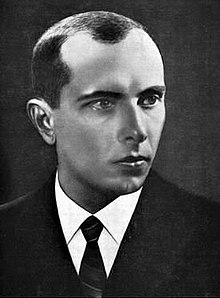 Ukrainian Insurgent Army (UPA) that eventually waged a guerilla war on two fronts, that is both against the Soviet Union and the Third Reich that didn’t hurry to grant independence to the Ukrainian state and imprisoned Stepan Bandera, also confirms this geopolitical rule. The OUN (Organization of Ukrainian Nationalists) and the UPA occupy the central place in the Kremlin’s propagandistic machine that for some unknown reason associates invasion of the Third Reich with the current Euro-Atlanticist “expansion” within the living space of Russia, that is Ukrainian eurointegration negotiations. Further, Western Ukrainian non-Orthodox Greek-Catholics and “Nazis” who once sided with Adolf Hitler and now made a choice in favor of the EU, according to the Kremlin, somehow have managed to overthrow the pro-Russian regime of Victor Yanukovych in Kiev (with the help of the American money) during the Maidan revolution and imposed their “anti-Russian” ideology on the rest of “confused compatriots” who owe everything to Russia.
Ukrainian Insurgent Army (UPA) that eventually waged a guerilla war on two fronts, that is both against the Soviet Union and the Third Reich that didn’t hurry to grant independence to the Ukrainian state and imprisoned Stepan Bandera, also confirms this geopolitical rule. The OUN (Organization of Ukrainian Nationalists) and the UPA occupy the central place in the Kremlin’s propagandistic machine that for some unknown reason associates invasion of the Third Reich with the current Euro-Atlanticist “expansion” within the living space of Russia, that is Ukrainian eurointegration negotiations. Further, Western Ukrainian non-Orthodox Greek-Catholics and “Nazis” who once sided with Adolf Hitler and now made a choice in favor of the EU, according to the Kremlin, somehow have managed to overthrow the pro-Russian regime of Victor Yanukovych in Kiev (with the help of the American money) during the Maidan revolution and imposed their “anti-Russian” ideology on the rest of “confused compatriots” who owe everything to Russia.
Moreover, the Ukrainian nation is often portrayed by the neo-Eurasianists and theorists of Euro-Siberia as a “project” of the Austro-Hungarian, Polish, American and so on secret services that is aimed to undermine Russia’s geopolitical power. In other words, the Ukrainian nation is reduced to the status of the technical anti-Russian project, and nobody considers this vision chauvinistic. Besides, the Kremlin’s historiography has always represented the UPA as the “punitive” army of “cops” in service of the Third Reich that eagerly murdered the civil population; the fact that the identical propaganda is applied today by the Kremlin with regard to the whole Ukrainian nation while the Russian-backed militants kill the very people they claim to defend or shoot down the foreign aircraft only confirms the inconvenient truth about the NKVD officers disguised as the partisans of the UPA who committed the horrific crimes against the civil population in order to denigrate Ukrainian “fascism.”
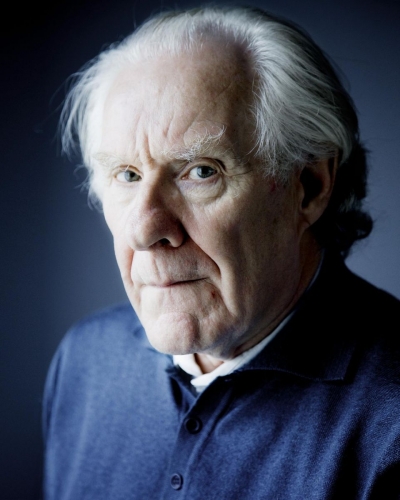 Echoes of the anti-UPA Soviet propaganda may be also found in the account of the Ukrainian events by French leftist philosopher Alain Badiou [13] who considers Ukrainian Orthodox church the most reactionary in the world (“a megalomaniac center of Imperial Orthodoxy”), calls the army of General Vlasov, who turned against the Bolsheviks and founded Russian Liberation Army, a “Ukrainian army” and accuses Ukrainian “Nazi collaborators” of “turning entire villages to blood and fire, including French ones”; not a single word is said about the NKVD crimes, which shows quite well the propagandistic continuity of the new and classic Left and raises a question of whether the authors of New Right, who condemn Ukrainian “ultra-nationalistic” threat and silence the neo-Bolshevik imperialism, are really right-wing. At the same time Badiou draws partially correct parallels between the events in Egypt, Turkey and Ukraine (“Tahrir Square, Taksim Square, the Maidan Square…”) and articulates much clearer than Faye or de Benoist the split between the pro-liberal and identitarian forces (“old-school Ukrainian nationalists who do not at all see their future in terms of ‘European freedoms’”), which was especially bright during Egyptian and Ukrainian revolutions. On condition of disregarding Badiou’s attacks on what is simply called “a titular nation” in Eastern Europe and negative scenario of the possible outcome of Maidan, his warnings against the “finitude,” that is historical reductionism that leads to simplified and distorted representation of the events in Ukraine as “the desire for the West,” are worthy of attention.
Echoes of the anti-UPA Soviet propaganda may be also found in the account of the Ukrainian events by French leftist philosopher Alain Badiou [13] who considers Ukrainian Orthodox church the most reactionary in the world (“a megalomaniac center of Imperial Orthodoxy”), calls the army of General Vlasov, who turned against the Bolsheviks and founded Russian Liberation Army, a “Ukrainian army” and accuses Ukrainian “Nazi collaborators” of “turning entire villages to blood and fire, including French ones”; not a single word is said about the NKVD crimes, which shows quite well the propagandistic continuity of the new and classic Left and raises a question of whether the authors of New Right, who condemn Ukrainian “ultra-nationalistic” threat and silence the neo-Bolshevik imperialism, are really right-wing. At the same time Badiou draws partially correct parallels between the events in Egypt, Turkey and Ukraine (“Tahrir Square, Taksim Square, the Maidan Square…”) and articulates much clearer than Faye or de Benoist the split between the pro-liberal and identitarian forces (“old-school Ukrainian nationalists who do not at all see their future in terms of ‘European freedoms’”), which was especially bright during Egyptian and Ukrainian revolutions. On condition of disregarding Badiou’s attacks on what is simply called “a titular nation” in Eastern Europe and negative scenario of the possible outcome of Maidan, his warnings against the “finitude,” that is historical reductionism that leads to simplified and distorted representation of the events in Ukraine as “the desire for the West,” are worthy of attention.
The aforementioned aspect of the Kremlin’s information warfare against Ukrainian “junta” concerns its presumable anti-Russian character and became especially strong after the successful beginning of the anti-terrorist operation (ATO) in Donbas in spring of 2014. Another reason why the Kremlin ascribed this inadequate term to the Ukrainian authorities is the forceful overthrow of Yanukovych’s regime at Maidan which supposedly makes the newly elected government “illegitimate” and distracts from the fact of the Russian invasion of Ukraine. It was a big surprise for all pro-Russian forces when the leader of “Novorussian” militia Igor Strelkov (Girkin), probably due to the deceived hopes for the historical changes and disappointment with Putin, admitted that Crimean referendum (recognized by “Front National”) was a farce and explained in detail the process of its occupation by Russian “green men” who forced the MPs to vote in favor of Russia [14].
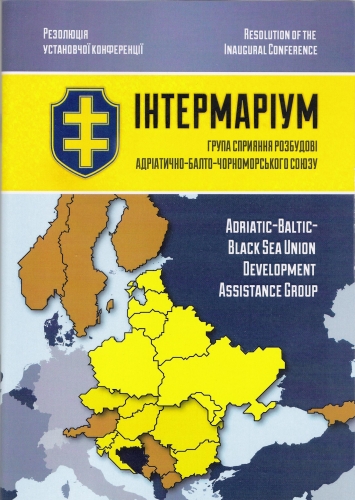 Stereotypical assertions about Crimea that “has always been Russian” or “a Russian territory for at least four centuries populated mainly by Russian populations,” as de Benoist contends, also stand no chance. Crimea was united with the rest of modern Ukrainian territories back in IV century within the Gothic Empire, has always been inhabited by various nationalities and remained under the rule of the Ottoman Empire much longer than the Russian. Besides, namely Ukrainian Zaporozhian Cossacks, who for centuries protected the rest of Europe from the Tatar and Turkish invasion, helped Russian empress Catherine II to conquer Crimea, which ended with destruction of Zaporozhian Sich in 1775 by her order. Only after several waves of resettlement, during which Russians immigrated to Crimea, and deportation of Crimean Tatars, who were a dominant ethnic group in Crimea, by Stalin in 1944, Russians have become the majority of Crimean population. To sum up, Crimea was under the reign of the Russian Empire (134 years) and Russian Soviet Republic (34 years), taken together, maximum for two centuries. Moreover, precisely the lands of Ukrainian Cossacks, which were mentioned in all international treaties as a territory of “Zaporozhian Lower Cossack Host,” have become the core of the “New Russia” after the Küçük Kaynarca peace treaty of 1774 and the destruction of the Sich in 1775 during the Russo-Turkish wars.
Stereotypical assertions about Crimea that “has always been Russian” or “a Russian territory for at least four centuries populated mainly by Russian populations,” as de Benoist contends, also stand no chance. Crimea was united with the rest of modern Ukrainian territories back in IV century within the Gothic Empire, has always been inhabited by various nationalities and remained under the rule of the Ottoman Empire much longer than the Russian. Besides, namely Ukrainian Zaporozhian Cossacks, who for centuries protected the rest of Europe from the Tatar and Turkish invasion, helped Russian empress Catherine II to conquer Crimea, which ended with destruction of Zaporozhian Sich in 1775 by her order. Only after several waves of resettlement, during which Russians immigrated to Crimea, and deportation of Crimean Tatars, who were a dominant ethnic group in Crimea, by Stalin in 1944, Russians have become the majority of Crimean population. To sum up, Crimea was under the reign of the Russian Empire (134 years) and Russian Soviet Republic (34 years), taken together, maximum for two centuries. Moreover, precisely the lands of Ukrainian Cossacks, which were mentioned in all international treaties as a territory of “Zaporozhian Lower Cossack Host,” have become the core of the “New Russia” after the Küçük Kaynarca peace treaty of 1774 and the destruction of the Sich in 1775 during the Russo-Turkish wars.
In other words, fairytales about Ukrainian state “as a gift of Lenin” and the South-East (“Novorussia”) that “has never belonged to Ukraine” are just another part of the anti-Ukrainian propaganda. As a matter of fact, such a gift could not happen, because the Bolsheviks haven’t seized power yet and were not recognized by the Ukrainian government – the Central Rada (Council). The borders of Ukraine in 1917-1918 were shaped solely by the Central Council of the Ukrainian People’s Republic that chose the ethnographic factor (ethnic composition of population and language) as a criterion of demarcation and made a basic administrative unit a province. Besides, further inclusion of other provinces of the former Russian Empire that were inhabited by Ukrainians was also an option (among them were mentioned Kholm, Grodno, Minsk, Kursk, Voronezh, and the Kuban regions).
Likewise, the Ukrainian Soviet Republic was not “nominal” as Faye tries to portray it; anti-Ukrainian chauvinism of the modern Russian government would be impossible in the USSR at the official state level, the same as Putin’s outrageous attempts to prescribe all victories and losses in WW2 solely to Russia and Russians. Further, Crimea was not transferred to Ukraine by the will of Nikita Khrushchev, as it widely believed today, but by Stalinist Georgiy Malenkov and other old members of the Communist party. Besides, they tried to win the loyalty of Ukrainians who had to restore devastated by the war peninsula and made this gift on occasion of the 300th anniversary of the Council of Pereyaslav as a result of which Ukrainian Hetman Bogdan Khmelnytskyi accepted Russian protectorate that was originally meant to be simply a military alliance.
Finally, the historical truth is important, but only the will to defend one’s own lands really counts. In this respect it’s necessary to mention an unexpected position of Byelorussian President Alexandr Lukashenko, who has always been considered a Russian puppet. He not only criticized Ukrainian authorities for giving up Crimea and offered Russia to return its lands to Kazakhstan and Mongolia, but also underlined that Belarus has never been a part of the “Russian world” and swore to protect integrity of Belarus in case of facing the threat of “the green man”: “Somebody thinks that there was no such country… It was not, but now it exists, and this must be considered. And we will not give our land to anyone” [15].
Pro-Russian sentiments of rightists are largely based on ignorance and wishful thinking. They have no idea about Russian “anti-extremist” laws and Putin’s war on historical revisionism, revisionism of the outcomes of WW2, Neo-Nazism, rehabilitation of fascism and glorification of Nazi collaborators on occasion of which he invited rabbis from Israel and Europe to take part in the conference in occupied Sebastopol (July of 2014). Not only Russian nationalists but also liberals who disagree with the authorities are effectively suppressed under 282 article of the Russian Penal code. These are the fruits of the well-known to Germans Historikerstreit (“Historians’ Dispute”) of 1986-87 which demonstrated solidarity of German and Soviet leftists regarding the German and, wider, European guilt and criminalized even the scientific study of these topics. Actually, namely Fyodor Dostoyevsky, who started his path as a leftist and is one of the biggest Russian conservative authorities, openly stated that a natural ally of Russian conservative is not a European rightist, but a European leftist as the one who desires complete destruction of the European order [16], which proves collaboration of Alexandr Dugin with Greek leftists “Syriza.”
Furthermore, according to the recent confession of the leader of the largest Russian right-wing organization (ethnopolitical association “Russians”) Dmitry Demushkin, who had to undergo a humiliating search by the FSB for the eighth time, “the Kremlin simply persecutes nationalists, and the force structures threaten them independent of the position of the nationalist on any particular question [such as Ukraine]. You can even glorify Putin, but this is no guarantee that you won’t be arrested or treated illegally. One must love Putin only with permission” [17]. Not surprisingly, this organization wrote an appeal to all European right-wing and conservative movements and organizations in which its Council highlighted concrete political steps of the Russian regime which ruin Russia ethnically and economically and urged them to respect the struggle of Russian comrades and not to support Putin. They added that annexation of Crimea and war in Donbas much worsened the situation of Russians and that defense of the rights of Russians is just a pretext for economic exploitation and further destruction of the Slavic world and unity [18].
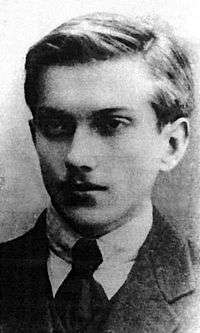 Thus Ukrainian nationalists, traditionalists and patriots realize that we deal with competition of the two poles of globalism that spring from the same root and justify themselves through reference to different mythologies. Authentic Ukrainian analogue of the European conception of Mitteleuropa is the project of Baltic-Black Sea Alliance (Union, Unia) that was developed, above all, by Ukrainian geopolitician Yury Lypa, the author of “The Black Sea Doctrine” and other works. One of the main Lypa’s ideas was rejection of the alien and destructive for Ukraine “East-West” dilemma (between Catholicism and Orthodoxy, West and Russia, liberalism and despotism, etc. that make Ukrainians look as a product of mix, say, between Poles and Russians) in favor of the traditional and natural for Ukraine orientation “North-East.” Lypa highly estimates both Germanic and Southern factors in Ukrainian history: for example, from the north came Goths and Normans (Vikings) who played an important political and state-building role, the south has always been the direction of Ukrainian cultural, military and trade expansion. The Baltic-Black Sea alliance as the third geopolitical way is partially connected with the Euro-Atlanticist integration, since some Eastern European and Baltic countries are members of the EU and NATO, but it aims at building of a sovereign geopolitical bloc which, apart from Eastern European and Baltic, could also include Scandinavian countries, as well as European part of Russia. It may become a starting point for the great European Reconquista which is heralded at present by the “Azov” regiment. The authoritative figures of the Right who produce the pro-Kremlin overviews of the events in Ukraine won’t change history and the logic of the struggle for the Ukrainian statehood and will only understand less and less in the Ukrainian developments along with their misguided readers.
Thus Ukrainian nationalists, traditionalists and patriots realize that we deal with competition of the two poles of globalism that spring from the same root and justify themselves through reference to different mythologies. Authentic Ukrainian analogue of the European conception of Mitteleuropa is the project of Baltic-Black Sea Alliance (Union, Unia) that was developed, above all, by Ukrainian geopolitician Yury Lypa, the author of “The Black Sea Doctrine” and other works. One of the main Lypa’s ideas was rejection of the alien and destructive for Ukraine “East-West” dilemma (between Catholicism and Orthodoxy, West and Russia, liberalism and despotism, etc. that make Ukrainians look as a product of mix, say, between Poles and Russians) in favor of the traditional and natural for Ukraine orientation “North-East.” Lypa highly estimates both Germanic and Southern factors in Ukrainian history: for example, from the north came Goths and Normans (Vikings) who played an important political and state-building role, the south has always been the direction of Ukrainian cultural, military and trade expansion. The Baltic-Black Sea alliance as the third geopolitical way is partially connected with the Euro-Atlanticist integration, since some Eastern European and Baltic countries are members of the EU and NATO, but it aims at building of a sovereign geopolitical bloc which, apart from Eastern European and Baltic, could also include Scandinavian countries, as well as European part of Russia. It may become a starting point for the great European Reconquista which is heralded at present by the “Azov” regiment. The authoritative figures of the Right who produce the pro-Kremlin overviews of the events in Ukraine won’t change history and the logic of the struggle for the Ukrainian statehood and will only understand less and less in the Ukrainian developments along with their misguided readers.
Notes:
- 1) Alain de Benoist on Ukraine (Part 1) <http://openrevolt.info/2014/04/06/alain_de_benoist_ukraine/>; (Part 2) <http://openrevolt.info/2014/04/20/alain_de_benoist_ukraine_2/>
- 2) Александр Дугин, Консервативная Революция (Москва: Арктогея, 1994, с. 32).
- 3) Robert Steuckers, Interview with Pavel Tulaev <http://robertsteuckers.blogspot.com/2014/02/answers-to-questions-of-pavel-tulaev.html>
- 4) Ibid.
- 5) Олег Бахтияров, Майдан и Юго-Восток Украины: три ошибки Кремля <http://artpolitinfo.ru/oleg-bahtiyarov-maydan-i-yugo-vostok-ukrainyi-ili-tri-oshibki-kremlya/>
- 6) Robert Steuckers, Interview with Pavel Tulaev <http://robertsteuckers.blogspot.com/2014/02/answers-to-questions-of-pavel-tulaev.html>
- 7) Julius Evola, Presuppositions of the European Union (North American New Right, San Francisco: Counter-Currents Publishing Ltd., 2012, Volume 1, p. 19).
- 8) Ernst Jünger, The Peace (Hinsdale, Illinois: Henry Regnery Company, 1948, p. 65-66).
- 9) Ian B. Warren, The Heritage of Europe’s “Revolutionary Conservative Movement.” A Conversation with Swiss Historian Armin Mohler <http://www.ihr.org/jhr/v14n5p3_warren.html>
- 10) Кто из нас правый? Письмо французского лидера «НОВЫХ ПРАВЫХ» Алена де Бенуа редакции журнала АТЕНЕЙ <http://velesova-sloboda.vho.org/actual/newrightwing.html>
- 11) Павел Тулаев, Современные вызовы славянскому миру <http://suzhdenia.ruspole.info/node/5401>; Павел Тулаев об успехах и противоречиях новых правых < http://modus-agendi.org/articles/3374>
- 12) Guillaume Faye, Ukraine: Understanding the Russian Position <http://www.counter-currents.com/2014/03/ukraine-understanding-the-russian-position/>; Guillaume Faye, On the Russian Annexation of Crimea <http://www.counter-currents.com/2014/03/on-the-russian-annexation-of-crimea/>; Guillaume Faye, Vive Poutine, la bête noire des bien pensants <http://www.gfaye.com/vive-poutine-la-bete-noire-des-bien-pensants/>
- 13) Alain Badiou, A present defaults – unless the crowd declares itself: Alain Badiou on Ukraine, Egypt and finitude <http://www.versobooks.com/blogs/1569-a-present-defaults-unless-the-crowd-declares-itself-alain-badiou-on-ukraine-egypt-and-finitude>
- 14) Moscow Agent Strelkov Admits Russian Army Behind Crimea Referendum <http://uatoday.tv/news/moscow-agent-strelkov-admits-russian-army-behind-crimean-referendum-404995.html>
- 15) Lukashenko: Belarus is not Part of the Russia World <http://www.unian.info/politics/1038195-lukashenko-belarus-is-not-part-of-russian-world.html>
- 16) Федор Достоевский, Дневник писателя, Книга 1 (Москва: Астрель: Аст, 2007, с. 354-355).
- 17) Putin Targets All Russian Nationalists <http://windowoneurasia2.blogspot.com/2015/03/putin-targets-all-russian-nationalists.html>
- 18) Appeal of Russian Nationalists to European (White) Nationalist (Right) and Conservative Organizations <http://vnnforum.com/showthread.php?t=253240>; Original <http://rusnat.com/2015/03/11929/>
11:50 Publié dans Actualité, Affaires européennes, Géopolitique | Lien permanent | Commentaires (0) | Tags : ukraine, europe, affaires européennes, olena semenkaya, nationalisme ukrainien, politique internationale, russophobie |  |
|  del.icio.us |
del.icio.us |  |
|  Digg |
Digg | ![]() Facebook
Facebook
jeudi, 18 décembre 2014
Ukrainian Nationalism, Socialism, & the Resistance to Imperialism in the 20th Century: From Franko to Stoyan
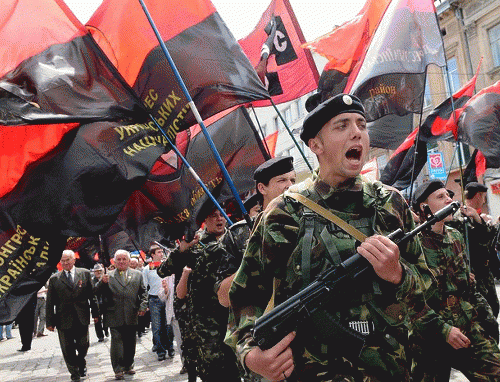
Ukrainian Nationalism, Socialism, & the Resistance to Imperialism in the 20th Century: From Franko to Stoyan
By Matthew Raphael Johnson
Ex: http://www.counter-currents.com
Introduction
In no way can a brief article do any justice to a complex idea like the Ukrainian nation. While this author has dedicated his academic life to these and related topics, its poor treatment in the press and distortion by certain emigre circles calls for a certain clarification. One that will not doubt please no one. However, this article purports to be nothing but a scattered set of ideas on a colossal topic penetrated by only a few.
National movements develop a scheme of history. Historical schools in the last two centuries have differed on what form of organization is the prime mover in history: national, urban, or civilizational, or economic. National histories have chosen among them to construct the best narrative. Of course, all histories do this, as the pure “abstract theorist” of fantasy does not exist anywhere.
The specific Ukrainian idea historically is worthwhile. It begins at Kievan Rus (really before that, with a Slavic civilization going far back in time) and does not veer off into Suzdal or Moscow. Rather, the powerful, but short-lived, state of Galicia was far superior as an example. Perfectly situated on Central European trading routes and blessed with endless salt marshes, the constant and usually violent confrontations between noble and crown led to a fairly balanced system. Two monarchs in particular, Roman and Daniel, ruing during the high middle ages, brought Galicia to the height of its power.
Suzdal was seen as a foreign state of Finns and northern tribes including Lapps and Permians which sacked Kiev under the prince of Vladimir, Andrei, in 1169. Andrei, nicknamed “Bogolyubsky,” was half Cuman[1] though his mother. Instead, the Ukrainian idea is slowly absorbed into Lithuania, which had called itself the gatherer of Rus’ before Moscow did. Tver had called itself the Third Rome before Moscow, and some have argued that Novgorod, Suzdal and even Ohrida claimed that title.
From the fall of the Galician state under the Mongols to the concomitant growth of Rus-Lithuania, gradual Polonization led to the creation of the Uniat, or “Greek Catholic” church, a symbol of colonial rule that attracted the ire of the Cossacks. The Cossack host is normally seen in the early modern era as having two sides: the first, the Hetmanate, or those groups fighting Polish or Turkish forces in that part of Ukraine and the Sich (or fortress) Cossacks at Zaporozhya. The latter had a tendency to be very populist, while the former was split between pro-Russian and pro-Polish wings (see below).
The broader point is that the idea of Kievan Rus and that of Moscow have little in common. The Ukrainian view, of both Orthodox and Uniat backgrounds, is that Kiev is best represented by the royal state of Galicia under Roman and Daniel, and then the decentralized Russian state of Lithuania, where the overwhelming majority of its population was Russian and Orthodox. Only after the Treaty of Lublin (1569) did Poland slowly absorb the Lithuanian elements as the Russian nobility fled to Moscow’s territory.
For historians such as Mykola Kostamarov in the 19th century to Mikhail Hrushevsky and Petro Doroshenko in the 20th, that approach has been dominant. The argument is that there is no quick transfer of the crown from Kiev to Suzdal to Moscow. That scheme of history, formalized in the 19th century by Katkov and even earlier by Karamazin, is still worthwhile and contains some truth, but it suffers by refusing to take Russian-Lithuania into account. Only in understanding, however vaguely, that scheme of history does the Ukrainian nationalist movement make any sense.
Two Ukraines, Two Hetmans: Pavel Teterya and Pavel Skoropadsky
Two figures, distant from one another in time although bearing the same title, serve to show the problematic aspects of Ukrainian nationalism and the eternal question of Ukraine’s orientation. Pavel Teterya, Cossack Hetman (monarch, war leader) of Polish Ukraine (that is, the Right Bank) died circa 1670. He was condemned by many, possibility a majority of Ukrainians at the time, for a pro-Polish outlook based on a strongly aristocratic political orientation. The Ukrainian idea for him was western, European, and can become a part of a federated structure with other ethnic groups including Poland. Ukraine was for Teterya and many like him, an integral part of Central, not Eastern Europe.
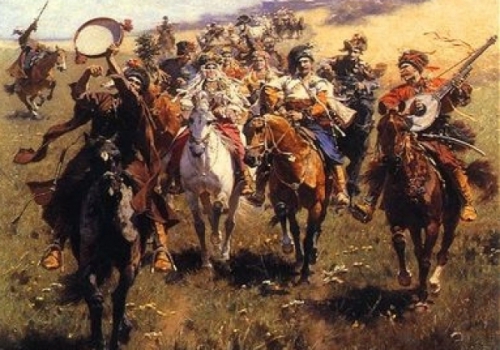
Another Hetman, Pavel Skoropadsky,[2] came to power just as Germany was signing the Versailles treaty. He is condemned equally with Teterya, but due to a pro-Russian, rather than a pro-western, stance. Neither man can be considered anti-Ukrainian in the least, but the means to ensure independence and cultural flourishing were very different. Both realized that Ukraine was too exposed to both east and west to ever be “independent.”
Teterya believed in a strong Ukrainian, Cossack nobility modeled on the Confederations within the Polish Senate. Seeking a cohesive elite, the preservation of noble and church property were essential for the maintenance of some kind of autonomy. Since a totally free independence was out of the question in the 1660s, Teterya sought a confederation of equality with Poland and Lithuania based on the Treaty of Hadiach (1658), negotiated by his predecessor, Ivan Vyhovsky.
This treaty, never made into law, described a political vision with Ukraine in a confederate union with Poland and Lithuania on the following conditions: that Orthodoxy and Catholicism be legally equal, that Polish and Jewish colonists be expelled, that Cossack nobles have the same rights as Polish ones, and that the Hetman be an office of strength, one that can quickly react to any vitiation of the agreement. This was accepted by Poland and the pro-western faction of Cossacks. The Russian invasion and the consequent Treaty of Andrusovo (1667) put an end to that, as this treaty divided Ukraine into Polish and Russian halves.
Russian agents spread the world that Teterya’s consultation with the Poles means that he wanted the Polish oligarchical system of “government” to be imposed on all Ukraine. They spread rumors that he had converted to Catholicism, which at the time was the same as to cease being Ukrainian. Most of his career was spent fending off rebellion and invasion from all sides, and he died a broken, miserable man. Even the date of his death is uncertain.
The Reds having briefly taken most of Ukraine by 1918, were overthrown by Pavel Skoropadsky (died 1945) who then ruled Ukraine as Hetman for a short time after World War I. German forces, brought into Ukraine due to Lenin’s signing of the Brest-Litovsk Treaty (1918), approved the coup and offered limited support to the Hetman. The problem was that neither Bolsheviks nor the “western” camp in Ukraine were satisfied.
In war-torn Ukraine, suffering from total dislocation, chaos, warfare, and death, Skoropadsky put Ukraine on a solid, independent footing. A former officer in the tsarist army, he mixed the best of Russian, German, and Ukrainian traditions in government. Every Ukrainian family under the Hetman was guaranteed 25 acres as a minimum which was inalienable. This land could not be taken away as debt repayment.
He created a peasant land bank that permitted peasants to buy land at subsidized rates. He created a firm monetary regime that was accepted throughout the nation for the first time. He massively increased education at all levels and created a brand new police force for the collection of taxes. Given the chaos of the age, the state under the previous Rada (that is, Council or parliament) failed to project power outside of Kiev. Skoropadsky realized that, in order for the country to survive, he needed a strong state, a rational army on the Russian model, and a navy. He succeeded on all counts.
His policies were so successful that he was able to loan the White army of General Denikin 10 million rubles and, at the same time, finance the newly independent state of Georgia. Ukraine was totally self-sufficient in food, and exported a full 35% of the total harvest in 1918. The most impressive achievement of all is that the Hetman did this only between April and December of 1918. Such clear political genius created for him numerous enemies.
Ukrainian “nationalists,” in league with both Poland and Lenin, overthrew Skoropadsky near the end of 1918, forcing him to flee to Germany. Ukraine was then governed by the ineffectual Directory, modeled after the French Revolutionary council of the same name, making the country ripe for the Red takeover. Since Symon Petliura (died 1926), the head of this “nationalist” government, refused to fight with the White forces, he went to Poland for military assistance. This absurd alliance was rejected by nearly all, since Poland had made it clear that it sought to annex much of Ukraine to itself. However, for a brief time, Poland and Petliura had defeated both Whites and Reds.[3]
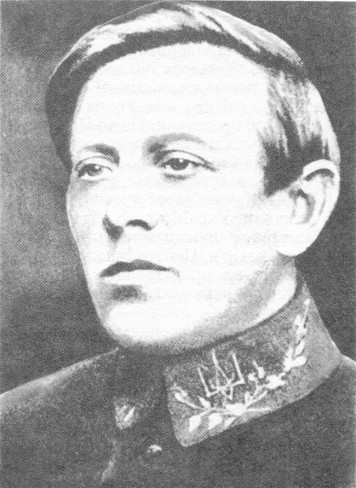 Petliura was a member of the “Poltava” Masonic organization, as were several of the major Ukrainian nationalists in the 19th and early 20th century. This was also the organization that initially gave birth to the elite Decembrist movement. It is not, however, to conclude from this that Petliura was in any way “illumined” but that he was a member and recruited within its ranks.
Petliura was a member of the “Poltava” Masonic organization, as were several of the major Ukrainian nationalists in the 19th and early 20th century. This was also the organization that initially gave birth to the elite Decembrist movement. It is not, however, to conclude from this that Petliura was in any way “illumined” but that he was a member and recruited within its ranks.
Petliura, a Mason and ostensible Ukrainian nationalist, cooperated with the Poles against the Reds, and cooperated with the Reds against Skoropadsky, a policy almost designed to destroy the strong foundation for independence Skoropadsky had skillfully laid. These “nationalists” ensured the genocide of Ukraine that both the Poles and Reds would unleash.
The Directory was split between Petliura’s “republican” faction and V. Vinnychenko’s “communist” faction. Like Stepan Bandera (see below) Petliura was a “social nationalist,” believing in a “labor Ukraine” that is governed by both workers and peasants. The real problem was poverty: Petliura held that the present, war-torn condition of Ukraine was a breeding ground for opportunism. This means that the poor, the war-weary and the exhausted will accept any government promising some level of stability. That was not the role either the Rada or Directory was able to play. Only two factions were capable of this: Skoropadsky or the Bolsheviks.
The narrative above summarizes much about Ukrainian life. The Teterya movement was western, aristocratic, and pro-Polish. Other major figures promoting this view were Hetmans Ivan Vyhovsky and Ivan Mazepa. This is the proverbial “western” approach of Ukrainian nationalists. Petliura was clearly in this camp as well, as were most Ukrainian Masons.
The other faction is represented by Gogol or Skoropadsky. Hetmans such as Damian Mnohohrishny (d. 1703) or Ivan Briukhovetsky (d. 1688) were pro-Russian, but did not accept any form of direct rule from Moscow. Neither faction wanted anything other than an autonomous or (later) independent Ukraine, but the question was the source of identity and the means of its achievement.
Ivan Franko
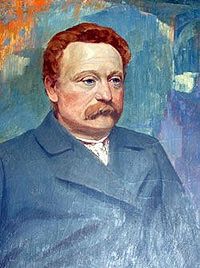 The era of Skoropadsky came on the heels of Ivan Franko’s death in 1916. Franko was one of the more interesting figures in the Ukrainian national-socialist movement in the early 20th century. Constantly reassessing the nature of the state, Franko made arguments for a national form of state socialism while, in other contexts, direct condemnations of the state in general. The state, at its worst, is an unfairly privileged institution which enshrines political and economic inequality as the “common good.”
The era of Skoropadsky came on the heels of Ivan Franko’s death in 1916. Franko was one of the more interesting figures in the Ukrainian national-socialist movement in the early 20th century. Constantly reassessing the nature of the state, Franko made arguments for a national form of state socialism while, in other contexts, direct condemnations of the state in general. The state, at its worst, is an unfairly privileged institution which enshrines political and economic inequality as the “common good.”
He accepted Marxism on four specific points: that dialectics, rather than linear logic, is the best way to understand the social nature of logic. The dialectical method, almost always misunderstood and mangled, is the constant interplay of the ideal and its physical manifestation. In other words, any ideal of the nation is constantly being contrasted to the daily grind of social or civic life. Movement is then the perception of the gap between the two.
Secondly, he accepted Marx’s concept of surplus value. There are two ways to view this: the first is that the act of production has to produce more value that it took to make the product. The surplus value is then what is absolutely required in order to a) replace and maintain capital and b) provide a profit for the capitalist. The profit for the owner of capital is the second element of surplus value. The two both require surplus value, but their social distinctions are very clear. The productivity of labor and its manifestation in wages is another example of how dialectical logic is superior to its Anglo-American linear and bourgeois competitor. Its significance is that, given the massive increases in productivity then and now, man need only work a few hours a week to ensure all basic needs are met.
Third, that history can be understood as being set in motion by changes in the means of production. As those profiting from capital continually use labor to better increase production in both quality and quantity, technology changes. History is then this dialectical adjustment among labor, technology and the classes that benefit from both. Finally, he accepted the idea of labor as the sole source of value, something uniting both Locke and Marx.
He rejected Marx on the questions of materialism, the domination of the state and, finally, the fact that centralization of capital has not occurred. Small business has not been destroyed in the west the way Marx had predicted. Franko held that civilization can never be reduced to matter in motion. Thought, social exchange, symbolism, ideals and hopes for the future are not produced by material things. These goods are in fact, not material at all.[4]
Marx was useful, but since he rejected the importance of ethnic ties, he was ultimately rejected. The broader point is that any true nationalism, being based on solidarity, cannot then enshrine competition in economics. For Franko, capitalism was based on three things: the demand of capital for labor at the lowest possible price, to buy raw materials and other necessaries at the lowest possible price and finally, to sell the product to the public at the highest possible price.
The modern state, however, is different from government. It is not based on solidarity, but comes into existence through force. This force is that of the wealthier elements of the population using their private security as “government.” The modern state is a machine that cannot command loyalty. The ethnic group, the folk certainly can, but the relations between the folk and the state are normally in opposition.[5] Later in his career, Franko would reject anarchism because the human race had been too brutalized by the machine. Self-government and the capitalist division of labor were not only incommensurable, but polar opposites.
Franko’s view was that independence is a necessity for both solidarity and economic reform. Colonialism was a problem in part because it automatically condemned the profits from labor in the country to be shipped out of it. Colonization made no sense unless the colonizer was getting something out of it. For Franko, the colonization of the poorer by the richer was justified by progress and social Darwinism. The only thing now included in this concept of progress was moral progress.
Franko’s view of history was progressive, but a progress based on moral liberty. Economic development is one thing, but if it does not lead to the emancipation from labor (or at least drudgery), then it is not worthwhile. Progress itself is ambiguous as it has opposing effects on specific human peoples and places. The division of labor, which is main driving force of development, together with the disparity of strength, character and abilities creates and exacerbates inequality among people. Like most nationalists, Franko argues that national belonging must be based on some sort of substantial equality. Nothing can justify the rule of a small handful of rich people and millions of the exploited poor.
Franko’s understanding of history is the growth process of human free activities to expand the limits of the possible. However, man is not abstract: this liberation from necessity and drudgery is also mostly at the level of families and communities, not individuals.
It is essential that defining community through which people able to exercise their pursuit of happiness, Ivan Franko emphasizes the nation as an integral organic and natural part of the historical process. Franko could not be clearer in his book, Beyond the Limits of the Possible:
Anything that goes beyond the frame of the nation is either hypocrisy from people of internationalized ideals which serve to provide cover for ethnic domination of one nation over another. Either that, or a sickly sentimentalism and fiction that could only serve to express one’s alienation from his own people.[6]
The left is failing, so Franko argued, because it has nothing but economic demands to hold society together. This is completely insufficient. The nation is “a natural expression of the soul.” In this sense, the nation is an essential part of one’s individual makeup. Without it, mass society develops: a gaggle of undifferentiated, mostly superfluous “voters” and “consumers.” Each person is responsible for changing himself away from the mass, it’s just that the mass is much easier: there is no freedom or identity to live up to. The nation is as much subjective as objective. He rejected anything that turned man into a machine, which is what he saw modernity doing.
The “savage” is the moral superior of the “Enlightened” English colonialist, since the Enlightenment itself came from England’s exploitation of much of the world. Progress is hence dependent on colonialism, the factory system and the ideology of materialism that turns man into a machine. The problem with Darwin was that freedom is nowhere to be found. The world is a mechanized unit. Therefore, in the human world, there must be something that does not evolve, namely our consciousness and freedom. Franko’s atheism (which waxed and waned throughout his career) was not compatible with the mechanism of Darwin’s theory. For him, the dialectic of freedom and necessity in nature always tormented his work and never found a solution.
Even worse, Franko found no home on either the “right” or the “left” in Ukraine’s complex politics of the early 20th century. As Petliura and Vinnychenko never resolved their differences, Franko’s loathing of the left was based on the fact that they rejected the nation. What sort of society could be based merely on economic self-interest? After all, that’s all socialism was claiming. Without the “national,” the “socialist” is vapid, empty economism.
Since Franko was a socialist and atheist, the Orthodox or ethnic “right” had no interest in him. Since he believed in ethnic solidarity and moral regeneration, the “left” offered nothing to him either. As a secular man, Franko remains in the minority among Ukrainian nationalists, but his poetry and prose electrified activists regardless.
Stepan Bandera and the OUN
The famous Ukrainian nationalist Stepan Bandera (died 1959) argued that the nation is a genetic unity. It is based on shared biological foundations because it is based on intermarriage and hence, genetic similarity. People normally do not marry those who do not speak their language, which in the present climate in America, is a controversial statement. This difference in genetic constitution implies that economics and life choices will differ among peoples in that they are – at their most rooted biological level – different from one another. As genetics interact with the topography and political history of a people, a real, distinct ethnos is formed.
For Bandera, the family is the first community and the primal one. This slowly develops into a sense of mutual interdependence, one founded on a sense of solidarity that becomes the root of nationhood . This is especially pronounced if the group is undergoing external pressure from a marauding foe or a rapacious empire. This solidarity is, importantly, the root of a basic egalitarianism in economic life. Labor, as Hegel argued, is national in the sense that the division of labor is the transformation of individual interest into the collective.
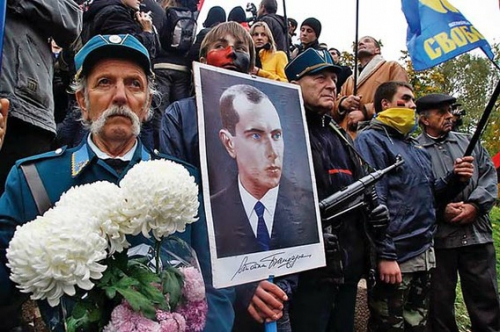
A common goal requires working in a climate of sacrifice and virtue. Like Ivan Franko and many others, nationalism for Bandera is a cultural unity leading to solidarity. In turn, this sense of family belonging alters the nature of work and hence, economic life. In many respects, this is an excellent ethical understanding of the folk-ethnos.
The state is essential here due to the size, power and militancy of the myriad enemies Ukraine faced in the first half of the 20th century. The state protects the ethnos and guarantees independence both economic and political. The state, as the instrument of the ethnos, guides investment and focuses resources on that which Ukraine can produce well. The point at which the state develops interests of its own, which might come close to adding some actual content to the “civic nation.” This, in truth, is just a mystification of state power without an ethnic or moral focus other than its own survival.[7]
Some object to Bandera’s insistence on ideological uniformity, seemingly innocent of the extreme levels of genocide the country had suffered. Apart from being a common and universal goal of all those with political power, Bandera sought a unified Ukraine as a means of self-defense and economic development. It was either that sort of militancy or national destruction. As of 2014, it is the latter, showing the fate of all “civic nations.”
Bandera accepted a limited state (since ethnic states are limited by definition), but one strong enough to maintain independence under the worst of conditions. While the concept irritates western minds that generally have no identity at all, the Ukrainian context fully justifies his combativeness.[8] For him, the state was a moral unity that, at its best, protects and facilitates both the material and spiritual life of the people (as opposed to a party).
The reality is that Bandera argued for a simple platform that sought primarily to fight the USSR, and only later to build a strongly integralist state that is capable of maintaining what would be a highly fragile independence. He rejected the idea that political factions, even together, represent “the people.” The nation is a unity while its negation is the party or faction which invariably represents some frustrated faction of an elite seeking power. Imperialism is when an ethnos decides to take other territories outside of itself. Mutual respect can only exist when each group remains on its traditional territory.
The nation generates its own ideological and philosophical forms. It does this by synthesizing historical experience and the cultural defense mechanisms that have been erected to deal with war, colonial occupation, genocide and poverty, all of which Ukraine has had more than its share. These are precious expressions of the human desire for freedom (though not egotistical self-assertion) and are crucial towards creating a strong foundation upon which an integral foundation can be erected.
In this sense, the nation is organic in that it is a natural outgrowth of the family and genetic principle, as well as the division of labor and the need for human beings to cooperate. Cooperation cannot occur without the nation. The role of the political or philosophical leader is to synthesize all of these into a program that is wide enough to contain many different tendencies, but narrow enough to be a source for policy.[9] Bandera argued that the moral norm is universalism, but such a view can only be expressed through the many nations that each form an aspect of it. There is no universal truth without particular truths.
Vasyl Stus and the Nature of the Motherland
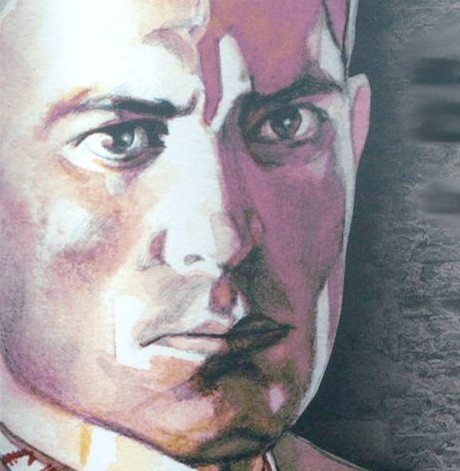 Ukrainian anti-Soviet dissident Vasyl Stus (died 1985) made the claim that only in suffering is the self ever really known. Each man, in Stus’ view, creates a “shell,” a sort of protective coating that protects him from the world of the spirit. This is a defensive mechanism to avoid all that which cannot be quantified. The spirit cannot be mechanized, it cannot be reduced to slogans or ideological manifestos. Therefore, it is avoided.
Ukrainian anti-Soviet dissident Vasyl Stus (died 1985) made the claim that only in suffering is the self ever really known. Each man, in Stus’ view, creates a “shell,” a sort of protective coating that protects him from the world of the spirit. This is a defensive mechanism to avoid all that which cannot be quantified. The spirit cannot be mechanized, it cannot be reduced to slogans or ideological manifestos. Therefore, it is avoided.
On occasion, this shell is broken when suffering is imposed upon it. The practical life of the external world is exposed as disguised contempt and the self discovers it has no anchor. Suffering forces the person to become fully known, to live entirely according to internal, ideal principles rather than external results.
The world has gone mad, therefore, we are forced to turn inward. The problem is that, for many, if not most, there is nothing to turn to. There is no inner self, but rather a superficial set of masks that are changed as circumstances dictate. Here, avoiding suffering seems to be the only purpose. It comes at the expense of personhood. This is the “mass man,” one incapable of rising above the pleasure-pain nexus. They are already dead.
Looking around, Stus came to realize that “success” was identical with both mediocrity and amorality. In the Soviet Union, the most absurd policies and ideas needed to be defended and justified. The problem was the long lines of volunteers to do just that. When pain becomes that which should be avoided at all costs, amorality is the necessary consequence. He watched professional frauds loudly trumpeted by the Soviet press solely because they supported the KGB’s agenda. Talentless hacks were being called “geniuses” while the truly gifted were dying in frozen Gulag cells. Certain things do not change.
Stus is significant because he connected the symbols of home, mother, nation (motherland), nature and freedom as essentially one thing. If Jean-Paul Sartre was to “solve” the existential issue in Marxism (or his own version of socialism) then Stus, who actually lived under it, created his own “solution” – our home, our motherland. The earth sustains man in that our ancestors are buried in it while we eat what grows out of it. The soil of one’s motherland literally becomes part of our body.
Freedom cannot exist without our home. There is no abstract man, nor is there abstract freedom: it is always a service to something. For Stus, fighting the USSR was the only service he knew. In 1965, a movie was shown in Kiev, one by Sergei Paradzhanov, Shadows of Forgotten Ancestors.[10] This led to a protest against the recent spate of arrests against dissidents and Ukrainian nationalists currently taking place. Stus was one of a handful that spoke out after the screening, knowing full well what will happen to him as a result. Once he publicly denounced the KGB’s tyranny, he was removed from the university where he was pursuing its graduate studies for “systematic violations of the norms of behavior of graduate students and staff members of research institutions” (from Kostash, 1998).
The Ukrainian dissident movement during the Cold War was normally an aspect of the nationalist movement. The Ukrainian ethnos, of course, was defined in many different ways, but there was a radical disjuncture between an artificial ideology such as Marxism on the one hand, and the organic development of custom and language, on the other. The latter is fluid, having stood the test of time. The former is rigid and doctrinaire, leading of course, to the existence of the dissident.
The fact that the Gulag loudspeakers during Stus’ time there were proudly announcing the signing of the Helsinki Accords on human rights was a vivid reminder of the nature of ideology. That the Soviet Union was so insane as to beam this into a Gulag population shows just how inverted and carnivalesque things had become. The world was mad, so the only thing that a man deprived of his home could do is go inside. To enter one’s inner world is the last line of defense against insanity.
Dmytro Pavlychko
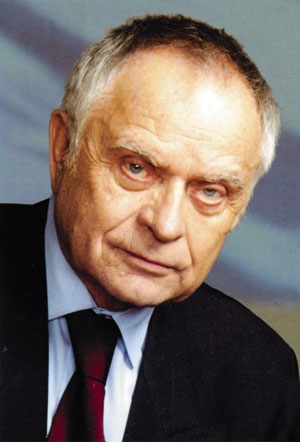 One useful but largely ignored approach to nationalism comes from the work of Dmytro Pavlychko (b. 1929). His “The Ukrainian National Idea” (2002) defines nationalism simply as the single highest form of meaningful social integration. Nationalism must be ethnic, since that is the source of culture. In addition, the struggles of a people are fundamental aspects of the folk and its subjective sense of unity. It is, as Bandera also suggests, forms of self-defense that have become ritualized as aspects of social behavior. This is the sign of a healthy society in the same sense that a strong immune system is a sign of a healthy body.
One useful but largely ignored approach to nationalism comes from the work of Dmytro Pavlychko (b. 1929). His “The Ukrainian National Idea” (2002) defines nationalism simply as the single highest form of meaningful social integration. Nationalism must be ethnic, since that is the source of culture. In addition, the struggles of a people are fundamental aspects of the folk and its subjective sense of unity. It is, as Bandera also suggests, forms of self-defense that have become ritualized as aspects of social behavior. This is the sign of a healthy society in the same sense that a strong immune system is a sign of a healthy body.
In his lecture of 2002 at the Kiev-Mohyla Academy, Pavlychko defined nationalism this way:
It is difficult to ascertain what the national idea refers to generally, because it can be understood as a complex unity containing ones mother tongue, customs, rituals, etc. . . It is the language of each people that serves as the foundation for identity, as well as its cultural and spiritual tradition. It also contains historical memory, its general mentality, its economic development, topography and general folkways. The national idea combines the essential identity of a people and the requirements for their autonomous and free development, none of which are independent of the state.[11]
The last sentence is crucial. It is the summary of his thought in general. Nationalism is the synthesis of two distinct sets of ideas, that of the ethnic identity and purpose as well as how these are protected and nurtured. The state, in traditionally German and Slavic sense, is both the nature of this unity and the form of its protection. The “state” is both the constitution of the state, that is, its traditional sense of justice, and the more formal institutions of coercion.
Historical facts have forged a unity in the face of constant pressure, violence and the very real possibility of destruction. Language too is born from the violence of history. No people on the globe have been free of foreign occupation or devastating warfare. It is these periods where one’s “otherness” is made quite clear, and thus, is the source of ethnic identity.
Each ethnos will create structures appropriate to itself, since conditions vary so radically. Law and state structures emanate from custom and history. Importantly, as soon as this connection between law and the ethnos is severed, the state loses its legitimacy. In saying that “none [of these things] are independent of the state,” he is speaking from a typically Ukrainian point of view. While national-anarchism was very common in 19th-century Ukraine, its precarious geographic position and its tough neighborhood make statelessness impossible. The state must exist for both Pavlychko and Bandera because all the custom and history in the world will not save the people from Stalin, or worse, western capitalism.
Suffering reveals the truth that happiness is not in possessions, urban “sophistication” or the bureaucratic pecking order. It is to be found in simplicity, something that has long been a part of Ukrainian ethnic thought since at least Kulish. This is what the enemies of nationalism fail to grasp: that ethnicity is born in the fires of pain and suffering. It is a function of what this writer has called elsewhere the “structures of resistance.”
The more evil the ruling system becomes, the more isolated the ethnos. The contradiction between the outer, disordered regime and the internal memory of the folk become extreme. What this can do is re-orient priorities, force people to find happiness in simplicity, and spiritualize daily life. Post-communist Ukraine, he states, works from the foundation only of money and power, the only “universal values” in the present global order.
Pavlychko’s idea is that the Ukrainian sense of self had existed as a medieval construct. Just as the Anglo-Norman shaped the subjectivity of the Gaels, the unia and Polish occupation shaped the Ukrainian idea. The Cossacks and Brotherhoods were the mainstays of the Orthodox Church under the violent thumb of the Polish nobility, and hence, these institutions are manifestations of ideas that became a part of the Ukrainian sense of self. Suffering can be cleansing and generate an awareness of reality rather than the image.
The academic hacks who condemn nationalism as “mythical” have no difficulty accepting abstract concepts such as the individual, the “global community,” or “international civilization” as perfectly real and obvious. This absurdity shows that the academic elite are tied to capital, since this is their creation. For Pavlychko, there is no such thing as an “international morality” and certainly no planetary “civilization.”
National belonging is a prerequisite for a solid doctrine of rights. Since rights do not hang in midair, they must have an origin that is not entirely reducible to mere expressions of utility or self-interest. Cosmopolitanism can generate no doctrine of rights, since it has no substantive qualities at all. The abstract “individual” or “universal values” can generate nothing concrete, since those slogans are themselves vapid and vacuous.
The distinction between truth and the world of media-generated images is what suffering can make clear. Foreign occupation and constant war forces the more civic minded of the ethnos to be isolated and impoverished. Only from this vantage point can the system be seen for what it truly is. The bureaucratic mentality is one that will serve anyone with power. Hence, these functionaries, since they benefit from the system, cannot judge it. Those who they exclude in the name of “tolerance” and “openness” see them as the frauds they are, but it is only through such exclusion can the truth be fully understood.
Darius Stoyan and Donstov’s School
In the work of Darius Stoyan, a young graduate student at Taras Shevchenko University (as of 2013), the main concern is to justify the primordial origins of the folk. He writes that the nation derives from the Latin word for “tribe.” The tribe, not self-sufficient, slowly develops into a larger confederation of similar peoples until a nation is formed. Stoyan agrees with the conception that this development is hastened by the existence of a violent enemy or foreign occupation. People suffering this way are automatically excluded as a group and hence, their resistance becomes identical with the nation.
Put differently, ethnicity has always existed, as the ancient annals of Scotland, Ireland and Greece testify. However, it was not necessarily politicized, nor part of the subjective mentality of the common folk.[12] It was merely there, a unity within which social interaction can be mutually comprehensible. The growth of the modern state and the arrogance of bureaucratic empires created the politicized version of ethnicity known as “nationalism.”
Nationalism for Stoyan is comprised of the people, living in a specific territory, forging bonds and affective ties through the constant struggle with neighbors, powerful empires and nature herself. A spiritual essence is formed that becomes the center of the ethnic consciousness and marks them off from others close by. Religion, language and economic forms further differentiate the peoples. Intermarriage becomes inevitable since families must have significant commonalities to function, similar to nations.[13] He writes,
The national concept is manifest in the supreme principle of unity and actualized through the human will determined to create unity from the raw material of the ethnic experience. It has its own values developed by the creative interaction of people living in the same area speaking the same language.[14]
Following the work of Dmytro Dontsov, the stress here is on the common will of the leadership in forging a nation. As mentioned above, however, the severe circumstances of Ukraine throughout the entirety of the 20th century – and even more so today – makes such militancy justifiable. The “raw material” (which is my translation) is the historical folk-ethnicity of the population, often taken for granted or seen as so normal that it does not require comment. A militant leadership comes into existence, as Bandera shows, at times when the very existence of the nation is at stake. Militant organization, the forcible creation of unity in the face of extermination, is the issue here. In 2014, the same conditions apply.
Nations have existed as ethno-linguistic units throughout history, as has the imperial desire to destroy such identity. Empires are defined as those entities that unify nations in the interests of the ruling group. Empires are not nations themselves, but federations answering to a common center. The point is that there is no empire without nations, and they come to define each other. There is no civic life without linguistic and cultural unities.[15]
Since a non-alienated mankind seeks solidarity, justice, protection and communal belonging (which are all tightly related), nations are a natural and normal social form. Empires, however, are the products of greed and alienation. Solidarity creates the standards for progress, success and organization that abstract theory cannot hope to provide.
Nationalism became the weapon of choice against the economic aggression of the industrial world. Industrialization is inherently international since imperial empires existed before either capitalism or industrialism. Europe after World War II became an economic, rather than a cultural entity. The Bretton Woods system demanded the rejection of nationalism and mercantilism as a condition for access to credit. The post-war order was, in part, based on the implication that only the economy has rights over the population.
In Stoyan’s analysis of nationalism, he summarizes the concept in several ways. It is a subjective principle of identity, but its objective elements are equally significant. Culture is really the manifestation of a historical unity. Culture, in other words, is a product of history acting within the variables such as geography or available resources.
Conclusions
Stus placed the ethnic question as a matter of personal suffering. Prosaic gratification takes the place of virtue and calls itself “progress.” Those fighting it are rounded up. Modern man can only think in binary terms: individual and society, while the nation and community are syntheses of these terms. Love ends in tragedy just as Teterya and Skoropadsky’s love for the motherland led to their exile. Most of all, Stus argued that tyranny and collectivization requires a mass, not real persons.
The USSR, as Stus wrote from prison, is a “twilight” world where nothing is as it seems. The senses deceive, since the term “liberty” or “equality” is everywhere affirmed, but denied everywhere in practice. Nationalism is little more than those structures erected to protect the population from irrationality, colonial rule and exploitation. Nationalism is to see the archetype in both nature and culture and seek its realization in our nominal world. Poets can do this, so long as they suffer enough. To get what one wants is to avoid the archetype, it is not needed when desires are met. Just before his 1985 murder, Stus proclaimed that his very existence was an act of protest. Socialism did not know what to do with such people except put them in prison. One was either a proletarian New Man or he was not. The “nots” ended up as “zeks.”
The nation is a community, the individual can only be collectivized. Collectives and communes are as different as individuals from persons. The individual is an ego, a person is an acculturated being. Suffering forces one to discover the fundamentals of existence. It forces self-knowledge, but it is always dangerously close to despair.
The examples detailed above have shown that both nationalism and sovereignty are the cornerstone of international politics. Even the most predatory empire needs to use these symbols when it is in their interests. Even more, as the economies of the small Slavic states continue to spin out of control, internationalism, neoliberalism and empire are seen more and more to be illegitimate and in fact, rapacious. Belarus and Russia are exceptions, showing basically healthy economies based entirely on a rejection of IMF demands.
This writer agrees that the most successful economic policies come from a strong state and ethnic unity. Examples include Japan, Russia, South Korea, Taiwan and Belarus. All of these states are examples of economic successes based around the rejection of neoliberalism and in favor of state-centered investment policies and long-term employment. The death of neoliberalism—outside of Washington and Harvard—will be missed by few.
Notes
1. The Cuman or Polovtsy were a Turkic tribe and a long-time enemy of the Slavs.
2. Sometimes, modern Ukrainian spells his name Skoropadskyi (Скоропадські). Of course, Pavel is the Slavic for “Paul.” The name is of ancient Ukrainian-Lithuanian background. He was related to the earlier Hetman of Ukraine Ivan I Skoropadsky (d. 1722) through Ivan’s daughter, who married Petro Tolstoy, producing another Ivan, from which Pavel is his grandson. This means Pavel is the great-great-grandson of Ivan I and hence, has at least a hereditary claim to the Hetmanate, something desired by the famous revolutionary Hetman Bohdan Khmelnytsky and many others.
3. This is sometimes called the Polish-Soviet War and lasted from 1919 to 1921. See Davies, Norman Richard (1972). White Eagle, Red Star: the Polish-Soviet War, 1919–20. Random House
4. Франко, Іван. Соціалізм і соціал-демократизм. Originally published in «Житє і слово» in 1897 (Volume 6, number 4, pps 265-292). This article was banned in Soviet Ukraine.
5. Франко, Іван. Формальний і реальний націоналізм. This article was not published until 1936 abroad. The essential argument is that nationalism requires socialism.
6. Ivan Franko, ‘Beyond the Limits of the Possible’, from Ralph Lindheim and George S.N. Luckyj, eds., Towards an Intellectual History of Ukraine (Toronto 1996)
7. Посівнич, Микола. Степан Бандера — життя, присвячене свободі. Літопис УПА, 2008, III (N. Posivnych, from the Collected Works of the UPA, vol 3).
8. Ibid.
9. Кук, Василь. Життя і діяльність Степана Бандери: документи й матеріали / Редактор і упорядник — Микола Посівнич. Тернопіль: Астон, 2008 (Vasyl Kuk)
10. This film was released in the US in 1967. Not only did Stus get arrested due to his support of this film and its director, but the producer himself, Paradzhanov, was sentenced to five years hard labor as a result of his work. Technically, the film was condemned due to its purely realistic and romantic approach to the Hutsul people (a Slavic tribe in the Carpathians), but it shows an ethnic group in the full flower of its customs. This was why it needed to go.
11. Pavlychko, D. The Ukrainian National Idea. Inaugural Lecture honorary doctorate of Kyiv-Mohyla Academy, 2002 (translation mine).
12. The concept of “subjective awareness” is a red herring. Ideology is always the domain of intellectuals and activists. Most of the common folk take their unities for granted, since much else occupies their time. Using this as an argument that nationalism is a recent phenomenon is just poor reasoning.
13. Stoyan, D. (2012a) Шевченка в історіософській концепції Ю. І. Вассияна. Publications of the Dmytro Dontsov Research Center.
14. Stoyan, D. (2012) Проблема визначення поняття «нація» в контексті філософської спадщини Ю.Вассияна. Publications of the Dmytro Dontsov Research Center (translation mine)
15. See two articles of his: Stoyan, D. (2012) Проблема визначення поняття «нація» в контексті філософської спадщини Ю.Вассияна. Publications of the Dmytro Dontsov Research Center; and Stoyan, D. (2012a) Шевченка в історіософській концепції Ю. І. Вассияна. Publications of the Dmytro Dontsov Research Center.
Bibliography
Almond, Mark (2008) “On Ukrainian Nationalism.” Russia Behind the Headlines, 28 November (rbth.ru/articles/2008/11/28/281108_nationalism.html [2])
Beiner, R. (2003) Liberalism, Nationalism, Citizenship: Essays on the Problem of Political Community. UBC Press
Hobsbawm, E. (1991) Nations and Nationalism Since 1780: Programme, Myth, Reality. Cambridge University Press.
(Hobsbawm was a Jewish communist called an “authority on nationalism” by the entire academic establishment. Most of his work was promoting Marx and Marxism globally. He did not possess the qualifications to grasp nationalism nor the intellectual honesty to pursue it. He sought only to destroy it while downplaying his ethnic identity).
Кук, Василь (Vasyl Kuk, 2008). Життя і діяльність Степана Бандери: документи й матеріали. (Редактор: Микола Посівнич). Астон.
Посівнич, Микола. Степан Бандера — життя, присвячене свободі. Літопис УПА, 2008, III (N. Posivnych, from the Collected Works of the UPA, vol 3).
Pavlychko, D. The Ukrainian National Idea. Inaugural Lecture honorary doctorate of Kyiv-Mohyla Academy, 2002 (Інаугураційна лекція почесного доктора Києво-Могилянської Академії, виголошена 1 вересня 2002 року)
Originally published in the journal Young Ukraine (Молодь України” 2002 10 and 12 вересня, 113-114). http://newright.primordial.org.ua/pavlychko.htm [3]
Павличко Д. (2012) Українська національна ідея : ст., виступи, інтерв’ю, док. Дмитро Павличко. Вид-во Соломії Павличко «Основи»
Stoyan, D. (2012) Проблема визначення поняття «нація» в контексті філософської спадщини Ю.Вассияна. Publications of the Dmytro Dontsov Research Center.
Stoyan, D. (2012a) Шевченка в історіософській концепції Ю. І. Вассияна. Publications of the Dmytro Dontsov Research Center.
Tismaneanu, V (2009) Fantasies of Salvation: Democracy, Nationalism, and Myth in Post-Communist Europe. Princeton University Press
Франко, Іван. Соціалізм і соціал-демократизм. (“Socialism and Social Democracy”) Originally published in «Житє і слово» in 1897 (Volume 6, number 4, pps 265-92)
Франко, Іван. Формальний і реальний націоналізм. (“Formal and Real Nationalism”) Published in the Lv’iv Newspaper Forward «Назустріч» in 1936. It also appears in his Collected Works, 1980, vol 27, pps 355-63
Kostash, Myrna (1998) “Inside the Copper Mountain.” In: The Doomed Bridegroom: A Memoir. New West Press, 34-70
Davies, Norman Richard (1972). White Eagle, Red Star: the Polish-Soviet War, 1919–20. Random House
Dmytro Doroshenko (1957) “A Survey of Ukrainian Historiography.” Annals of the Ukrainian Academy of Arts and Sciences in the US, 5-6(4): 262-74
Serhii Plokhy (2005) Unmaking Imperial Russia: Mykhailo Hrushevsky and the Writing of Ukrainian History. University of Toronto Press
Article printed from Counter-Currents Publishing: http://www.counter-currents.com
URL to article: http://www.counter-currents.com/2014/12/ukrainian-nationalism/
URLs in this post:
[1] Image: http://www.counter-currents.com/wp-content/uploads/2014/12/bandera.jpg
[2] rbth.ru/articles/2008/11/28/281108_nationalism.html: http://www.counter-currents.comrbth.ru/articles/2008/11/28/281108_nationalism.html
[3] http://newright.primordial.org.ua/pavlychko.htm: http://newright.primordial.org.ua/pavlychko.htm
00:07 Publié dans Histoire | Lien permanent | Commentaires (0) | Tags : histoire, nationalisme, ukraine, nationalisme ukrainien, europe, affaires européennes, monde slave |  |
|  del.icio.us |
del.icio.us |  |
|  Digg |
Digg | ![]() Facebook
Facebook


